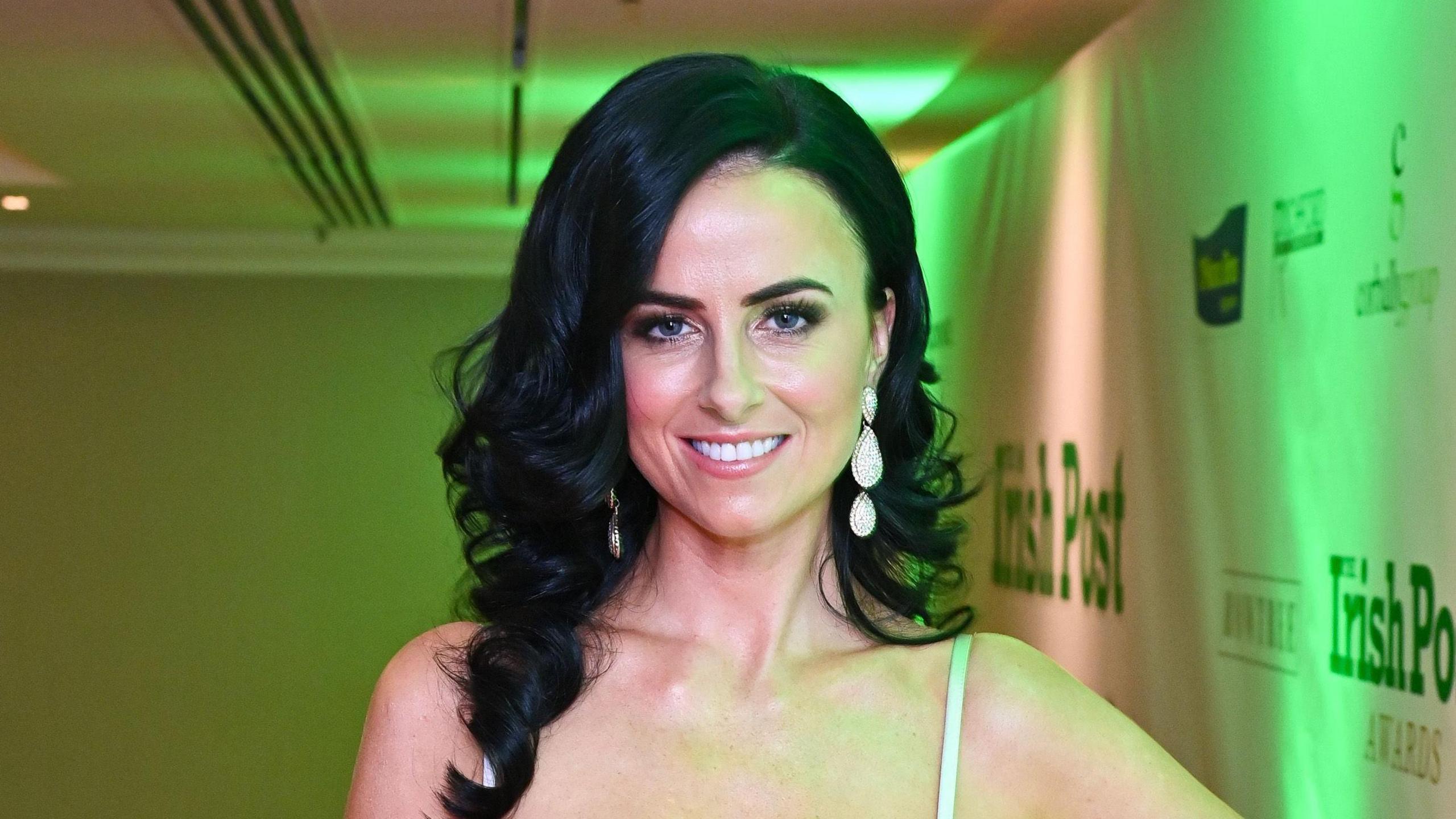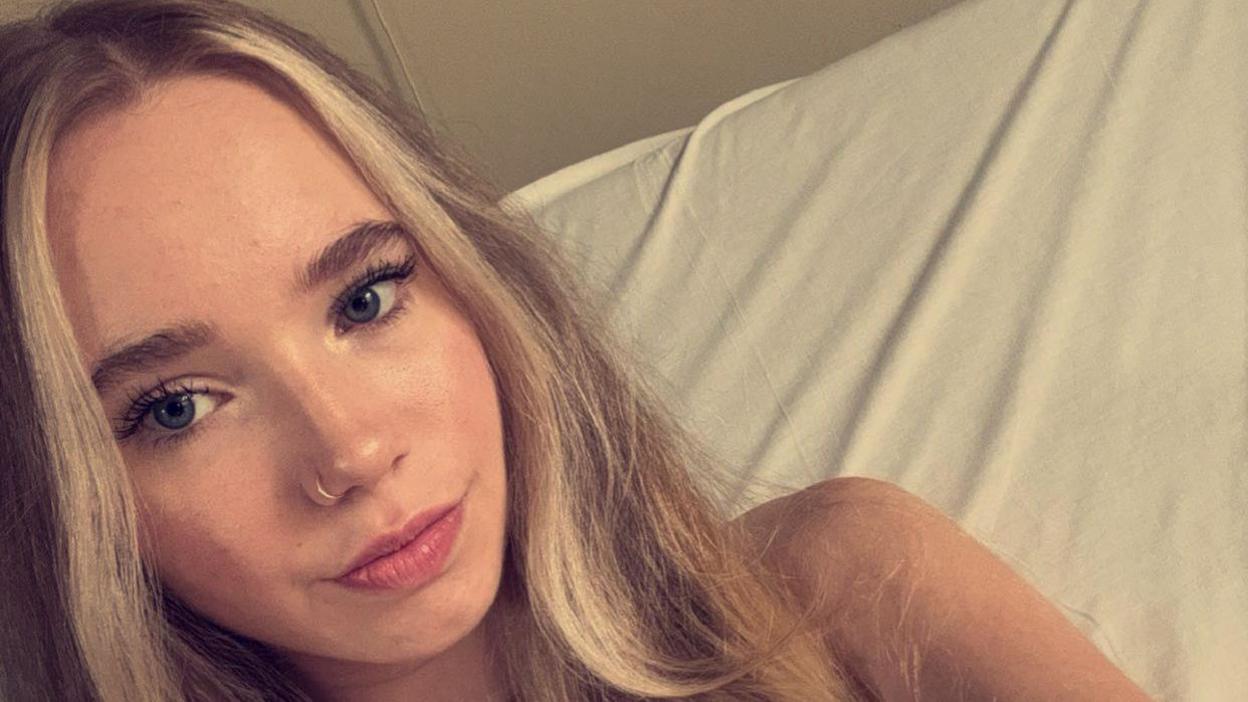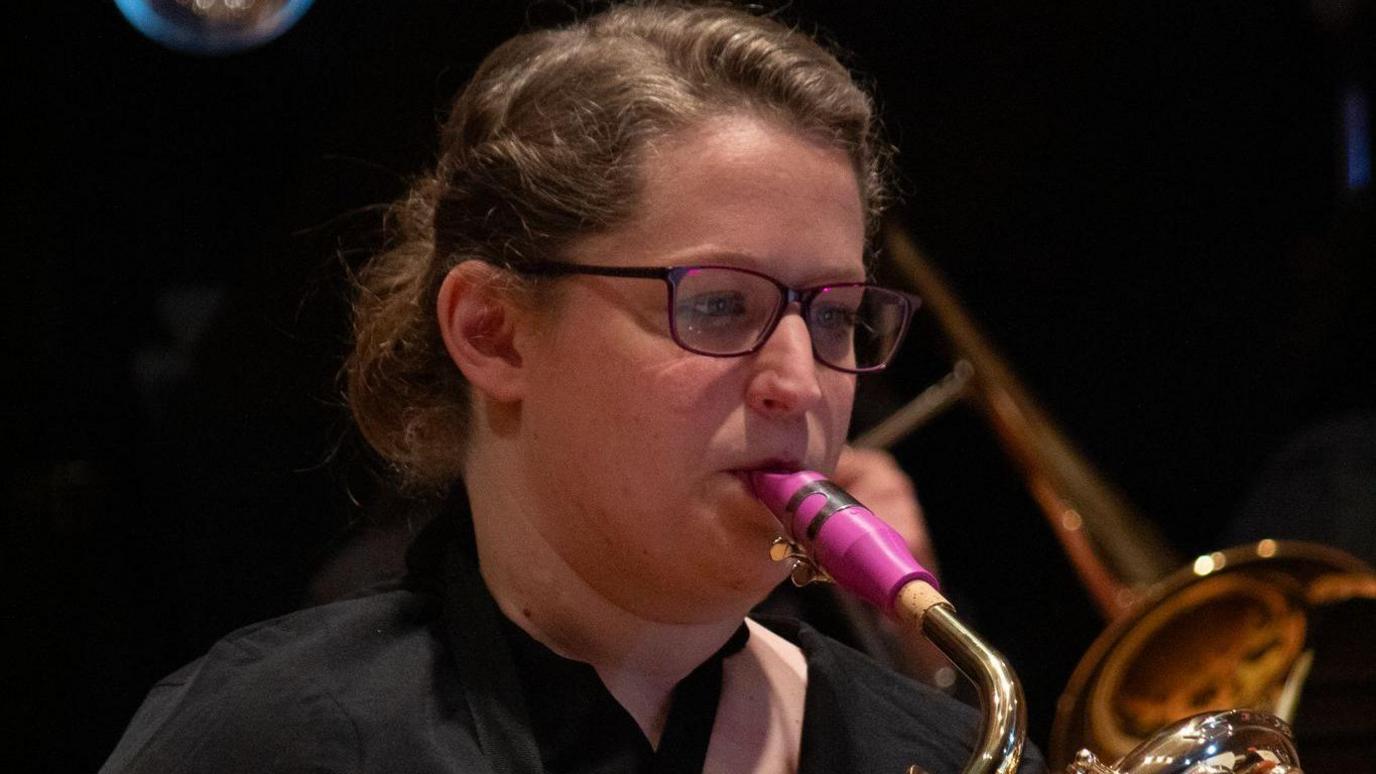Woman with daily seizures launches support group

Karla Rutherford was diagnosed with functional neurological disorder (FND) two years ago
- Published
A woman who suffered 27 seizures in one night said she was forced to set up her own support group because of a lack of understanding of her brain condition.
Karla Rutherford, from County Durham, has functional neurological disorder (FND) which affects how the brain receives and sends information to the rest of the body.
After her diagnosis in 2023, she said she spoke to a number of health professionals ''who didn't know anything'' about her condition, despite it not being rare.
''I didn't have the support when I was diagnosed and I know how my mental health suffered," the 39-year-old said.
"I don't want anyone to feel they are on their own.''
She has now set up regular coffee mornings with a support group for people with the condition to share their experiences.
They take place on the third Wednesday of the month at Chester-le-Street Community Centre from 11:00 BST.
'People question it'
Symptoms of FND include seizures and weakness in the arms and legs.
The neurological symptoms of paralysis, tremor and seizures, when not explained by stroke, multiple sclerosis, or epilepsy, are often indicative of FND.
Jon Stone, professor of neurology at the Royal Infirmary of Edinburgh, said historically that led people to wrongly question if the condition was real.
''Patients are often accused of having symptoms that are all in their mind or that they have made up, when they clearly haven't,'' he said.
Ms Rutherford said she suffers seizures every night and once had 27 in one night.
''I have weakness in my right side, I fall and sometimes I can't lift my right arm," she said.
"I also get a droopiness in my face that makes me look like I've had a stroke.''
Follow BBC North East on X, external, Facebook, external, Nextdoor and Instagram, external.
Get in touch
Do you have a story suggestion for BBC Wear?
Related topics
- Published16 July

- Published22 April

- Published28 March
